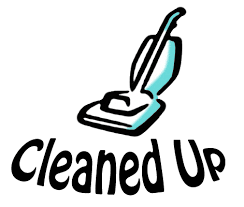I believe that's the first use in English. It was used in French before that, and in Latin before that, and in Greek before that.
I believe that the oldest manuscripts of the Didache are from the 4th century, and Christians from earlier centuries also referred to it.
It is a
mid 14th Century word from Greek 'Eukharista' meaning thanksgiving or gratitude and later the Lord's Supper.
Where did the word Eucharist come from - Answers.com
www.answers.com/Q/Where_did_the_word_Eucharist_come_from
You can dance all around this to make your Didache be accurate, but the absolute truth is it is a fraud and the Greek word applied to communion began in the mid-14th century. That is a historical fact. So, there is no way the original Didache in 50 A.D. could have used the term Eucharist.
It clearly was added into the Didache around the 14th century when the Didache was thought to be lost. And clearly it was not lost, it was being written then.
I don't think you know all that much about the original church.
You obviously do not!!
I can provide the Texas, Oklahoma, Florida, and Mid-Western Biblical colleges where both my Grandfather and Father (evangelists/pastors - biblical teachers and scholars - my Grandfather was Presbyter over the entire Mid-west for the Assemblies of the Lord Jesus Christ) taught at. I have all of the manuscripts for every topic discussed within scripture. I know the history of the first church better than I know the history of the country I was born in (United States).
Since my Grandfather and Father were biblical teachers/evangelists/pastors, I was being groomed to follow their footsteps from the moment I could talk and hold a reasonable conversation.
I have dissected the Book of Acts and Paul's letters since I was in kindergarten.
And every example of water baptism found within the New Testament (except for Yeshua) conducted by Peter, Phillip, and Paul were full body immersion. And NOWHERE did these men require people to first fast like the Didache specifies, nor did they sprinkle water three times like the Didache mentions, they dunked them full body.
In fact, as Peter was teaching/preaching to his fellow Jews in the Book of Acts chapter 10, they were astonished that a group of Gentiles had received the Holy Spirit and was speaking in tongues. And immediately (NO FASTING FOR ONE DAY), Peter baptized them in water in Jesus Name:
44 While Peter yet spake these words, the Holy Ghost fell on all them which heard the word.
45 And they of the circumcision which believed were astonished, as many as came with Peter, because that on the Gentiles also was poured out the gift of the Holy Ghost.
46 For they heard them speak with tongues, and magnify God. Then answered Peter,
47 Can any man forbid water, that these should not be baptized, which have received the Holy Ghost as well as we?
48 And he commanded them to be baptized in the name of the Lord. Then prayed they him to tarry certain days.
In Acts chapter 8, Phillip runs and jumps into a chariot owned by a Eunuch. As they pass water, the Eunuch mentions water and suggest being baptized. Immediately, Phillip stops the chariot, takes the Eunuch into the water and baptizes him (NO WAITING ONE DAY TO FAST BEFORE BAPTIZING LIKE DIDACHE SPECIFIES).
36 And as they went on
their way, they came unto a certain water: and the eunuch said, See,
here is water; what doth hinder me to be baptized?
38 And he commanded the chariot to stand still: and they went down both into the water, both Philip and the eunuch; and he baptized him.
In Acts chapter 19, Paul meets a group of men and asked how they were baptized. After learning by John the Baptist, Paul instructed them they needed to be baptized in Jesus. And immediately all of them were baptized (NO WAITING 1 DAY TO FAST LIKE THE DIDACHE SUGGESTS).
Acts 19:3
And he said unto them, Unto what then were ye baptized? And they said, Unto John's baptism.
Acts 19:4
Then said Paul, John verily baptized with the baptism of repentance, saying unto the people, that they should believe on him which should come after him, that is, on Christ Jesus.
Acts 19:5
When they heard this, they were baptized in the name of the Lord Jesus.
Example after Example of people being baptized by Peter, Phillip, Paul, and others AND NEVER ONCE DID THEY REQUIRE A 1 DAY FAST FIRST, no, they immediately baptized them right on the spot!!
Obviously, the Didache is full of Catholic dogma that does not represent the actual first church. You can tear the Didache apart section by section comparing it to actual events within the New Testament and NONE OF IT LINES UP.
The Didache is obviously a FRAUD!!


